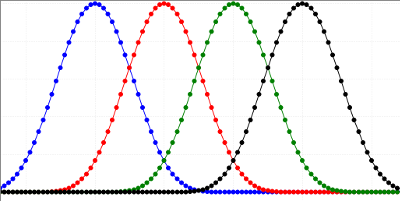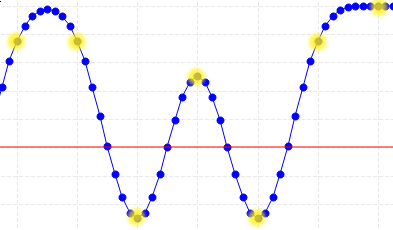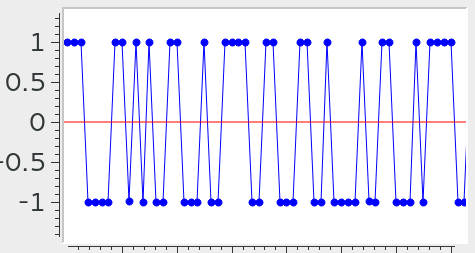On Thu, Jun 15, 2017 at 9:29 AM Federico 'Larroca' La Rocca <address@hidden> wrote:
FedericobestHi,Nice problem you got there. In any case, have you considered performing matched filtering (thus maximizing SNR), outputting more than one sample per symbol (in fact, without decimation at all), then equalize (so that the signal looks as if it was sent and received with a squared-root Nyquist pulse) and after all that use a standard clock recovery block? Since you know the shaping pulse, and as long as it does not go to zero over the range of frequencies of interest, you should be able to transform it into a Nyquist pulse. I may be wrong, but in any case Viterbi decoding for symbols will be difficult, so this may be worth trying.2017-06-15 9:57 GMT-03:00 Phil Frost <address@hidden>:I am working on a receiver for the amateur radio mode PSK31[1]. It's BPSK where the pulses are a raised cosine (impulse, not frequency domain) twice the symbol duration[2], no error correction, at 31.25 baud. The transmitted signal has no ISI, but after matched filtering it does:I had hoped to do matched filtering and compensate ISI with a Viterbi equalizer, but I'm unsure how to do clock recovery.I hoped to use the polyphase clock recovery block, but it seems this won't work since the derivative of the signal may not be zero at the ideal sampling points. Is that an accurate assessment?Perhaps the clock recovery MM block? The zero crossings aren't exactly in the middle of the ideal sampling points, but the error is probably negligible. I can't get it to work: I think it outputs the correct bits, but exactly 1 or -1, even though I should be getting +/- 0.5, 0.75, or 1 depending on the adjacent bits. I'm using the default settings. Is that the intended behavior?Finally, any other algorithms I should be considering?_______________________________________________
Discuss-gnuradio mailing list
address@hidden
https://lists.gnu.org/mailman/listinfo/discuss-gnuradio



